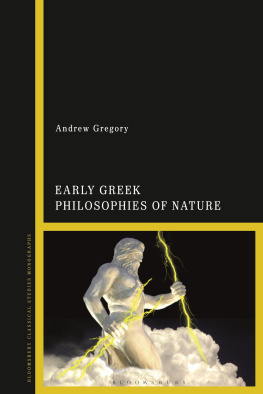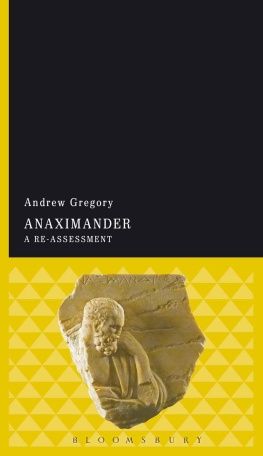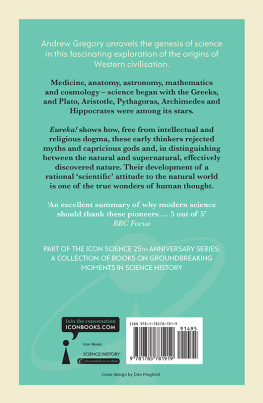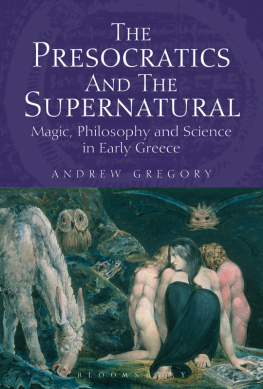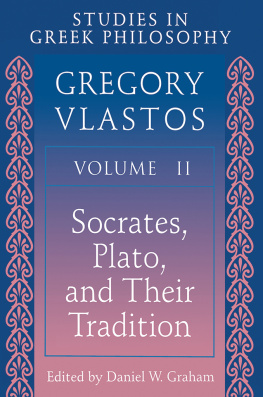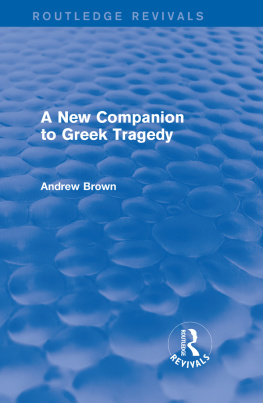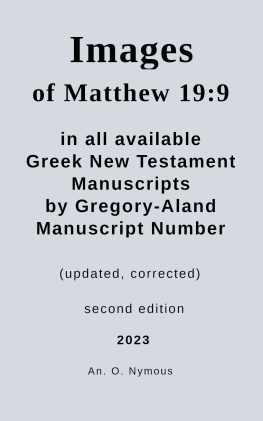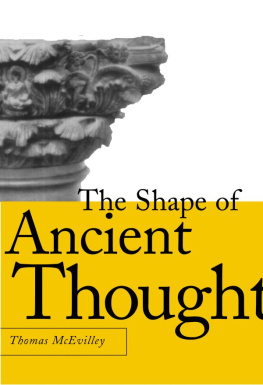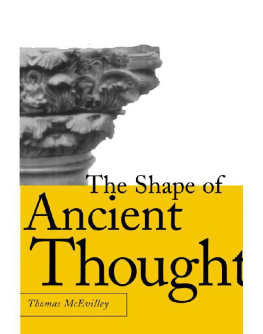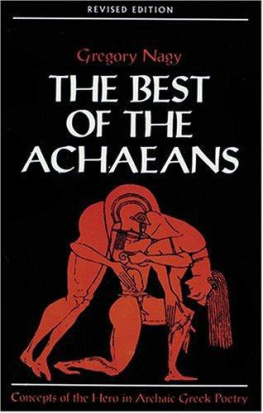Andrew Gregory - Early Greek Philosophies of Nature
Here you can read online Andrew Gregory - Early Greek Philosophies of Nature full text of the book (entire story) in english for free. Download pdf and epub, get meaning, cover and reviews about this ebook. year: 2020, publisher: Bloomsbury Academic, genre: Religion. Description of the work, (preface) as well as reviews are available. Best literature library LitArk.com created for fans of good reading and offers a wide selection of genres:
Romance novel
Science fiction
Adventure
Detective
Science
History
Home and family
Prose
Art
Politics
Computer
Non-fiction
Religion
Business
Children
Humor
Choose a favorite category and find really read worthwhile books. Enjoy immersion in the world of imagination, feel the emotions of the characters or learn something new for yourself, make an fascinating discovery.
- Book:Early Greek Philosophies of Nature
- Author:
- Publisher:Bloomsbury Academic
- Genre:
- Year:2020
- Rating:3 / 5
- Favourites:Add to favourites
- Your mark:
- 60
- 1
- 2
- 3
- 4
- 5
Early Greek Philosophies of Nature: summary, description and annotation
We offer to read an annotation, description, summary or preface (depends on what the author of the book "Early Greek Philosophies of Nature" wrote himself). If you haven't found the necessary information about the book — write in the comments, we will try to find it.
Early Greek Philosophies of Nature — read online for free the complete book (whole text) full work
Below is the text of the book, divided by pages. System saving the place of the last page read, allows you to conveniently read the book "Early Greek Philosophies of Nature" online for free, without having to search again every time where you left off. Put a bookmark, and you can go to the page where you finished reading at any time.
Font size:
Interval:
Bookmark:

For Sheelagh, with love.
Also available from Bloomsbury
Anaximander: A Re-Assessment, by Andrew Gregory
The Presocratics and the Supernatural, by Andrew Gregory
Ancient Greek Cosmogony, by Andrew Gregory
Platos Philosophy of Science, by Andrew Gregory

This book is about early Greek conceptions of
It is often said that there was an important change between the poets and the early Greek philosophies of nature. In Homer and Hesiod there are general regularities of With the Ionian thinkers, however, we see ordered worlds where there is complete regularity. This contrast has been to some extent overdrawn but is worth examining in detail, not least for the light it can shed on early philosophies of nature. In the first chapters of this book I argue that ideas of order, and the language those ideas were expressed in, did not spring forth ex nihilo but came about in interesting ways from engagement with the thought of Homer and Hesiod.
Central to this book will be the claim that there was an important tradition in early Greek thought that expressed the order of the cosmos in terms of the verbs kubernan, to steer, and kratein, to control, which we have so far under-valued or even ignored. What exercises this steering or control over the cosmos and how it does so, and the roots of this tradition in Homer and Hesiod, will all be issues for this book.
This book will reject what I see as some binary and unnecessarily divisive views. It will reject the idea that early Greek thought was either a precursor of modern science or primitive, and argue that there was important intellectual space between these poles to develop sophisticated ideas on the order of the world, which have subsequently been superseded. It rejects a binary division of poets and philosophers so it can investigate interesting links and influences between them on the question of order. It will attempt to apply similar historiographical principles to both, and more broadly to avoid the idea that Greek philosophy came ex nihilo and so constituted a Greek Miracle. It also rejects any binary division between science and religion and any simple conflict thesis between the two.
This book will doubtless be controversial to some for its claim that no one in early Greek thought can in any meaningful sense be described as a historiography, methods and definitions.
I would like to thank the anonymous referees for their comments on the proposal and draft of this book, my PhD students, Jon Griffiths and Hugh MacKenzie, for their comments on various drafts, the audiences at innumerable papers and conferences where ideas for this book were tried out and finally Chiara DAgostino, who proofread the transliterations of the Greek with great acumen, accuracy and efficiency.
As methodological issues will be crucial for this book, I want to discuss some of the key aspects in this first chapter. In particular I want to start with historiography, that is, how we approach doing the history of early Greek ideas on nature. As I will challenge the idea that any early Greek thinker was a mechanist, what assumptions are therefore in play and why have some scholars seen mechanism in early Greek thought? I also want to argue for some important intellectual space between what has direct affinity with modern science and what has been termed the primitive.Socrates autobiography in particular gives an account of thought prior to Plato that is too binary and inflexible. A less rigid account of Platos reactions to his predecessors, which is supported by other passages in Plato, reveals interesting information about early Greek thought on nature.
One important argument of this book will be that there has been a tendency to overestimate the extent to which early Greek philosophies of nature can be described as mechanistic, along with an overestimate of how plausible and effective the mechanistic interpretations would have been in context. I take mechanistic quite broadly here, encompassing views on ontology, causation, explanation, analogies and natural laws. The corollary is that we have underestimated the extent to which these philosophies of nature were committed to other modes of explanation and ontologies, and that we have underestimated, and indeed underexplored, how plausible and good these philosophies would have been in context.
It is important here not to privilege mechanistic interpretations in three senses. First, one approach to early Greek philosophies of nature has been to seek affinities with modern science. The view, largely tacit, is that the deeper or more wide-ranging these affinities are, the higher our evaluation of early Greek science will be. Hence there has been a drive to find affinities between early Greek thinkers and either the mechanical philosophy of the seventeenth century and after, or modern mechanistic views. Second, some aspects of the mechanistic view, particularly relating to how we frame natural laws, have become widely and generally accepted. It is important that we do not treat key assumptions here as atemporally evident, or in some sense natural, and everything else as inferior to or as a deviation from these supposed atemporal truths. Third, we must recognize that the mechanistic view has undergone development and has had periodic crises of plausibility. So, in the eighteenth century the mechanical philosophy struggled for plausible explanations of biological phenomena recently discovered with the microscope until more sophisticated modelling techniques were developed. It is critical to recognize that ancient mechanistic views lacked sophisticated modelling, and opposition to them was not wholly based on issues of teleology or theology but could be based on issues of plausibility as well.
This book will argue that there is an important sense in which the early atomists, Leucippus and Democritus, often taken to be mechanists, were in fact not mechanists. Materialists, certainly, with an ontology of atoms and void, what is and what is not. However, there is a difference between materialism and a mechanical interpretation of materialism. If we look at the analogies the early atomists used, they did not use mechanical analogies, they did not liken the world to a machine, but used biological, human, agricultural and maritime analogues instead.
Two arguments against early mechanistic ideas do not interest me.
I take this issue about affinities and mechanistic thought to be one within a broader phenomenon. In the history of science seeking affinities occurs more broadly, and one can see this process at work in the history of philosophy and in the history of literature too. The problem is not so much seeking affinities on their own but, as von Staden has argued, seeking affinities and eliding differences, or privileging any perceived affinities. recognition of which makes him a less modern thinker, but paradoxically much more coherent and interesting, and one more in tune with the ideas of his time.
I bring up these issues because I have some things to say about Homer and Hesiod that may be controversial. I will argue that there is an important sense in which neither Homer nor Hesiod had philosophies of nature. By this I mean that they had no term for nature, nor did they have any conception of or any term for what is beyond or contrary to nature. Homers Circe has been hailed as the first witch in the Western literary tradition. However, neither narrator nor characters in the
Next pageFont size:
Interval:
Bookmark:
Similar books «Early Greek Philosophies of Nature»
Look at similar books to Early Greek Philosophies of Nature. We have selected literature similar in name and meaning in the hope of providing readers with more options to find new, interesting, not yet read works.
Discussion, reviews of the book Early Greek Philosophies of Nature and just readers' own opinions. Leave your comments, write what you think about the work, its meaning or the main characters. Specify what exactly you liked and what you didn't like, and why you think so.

